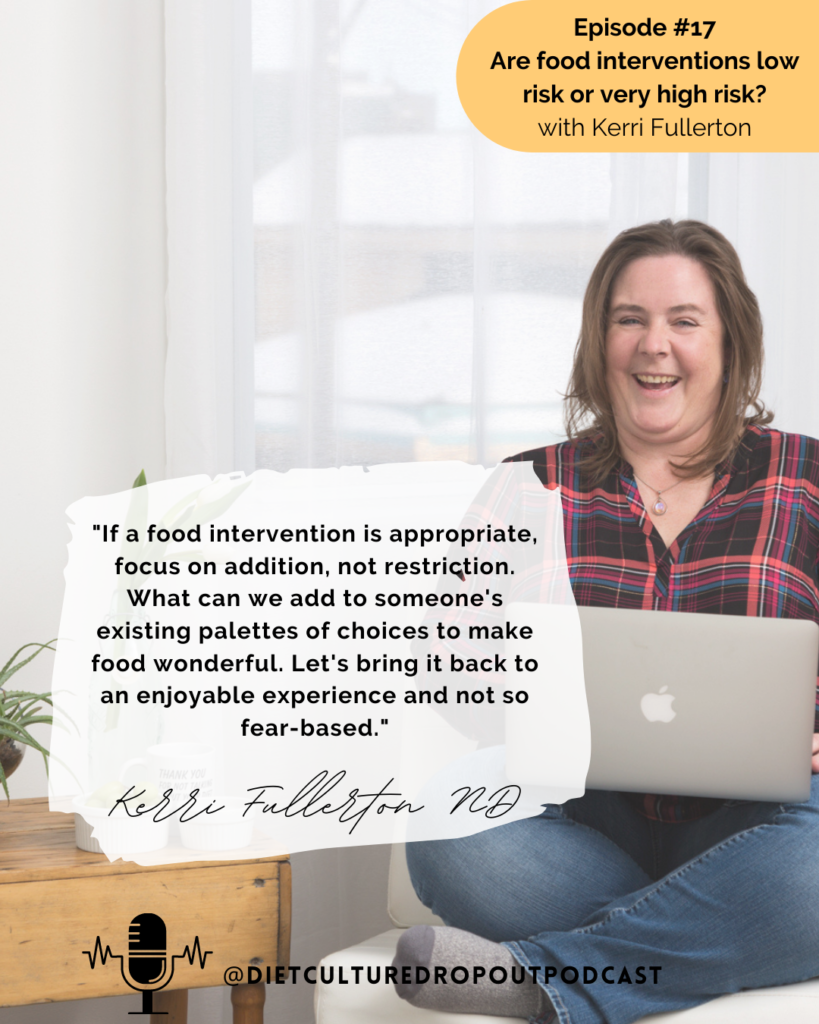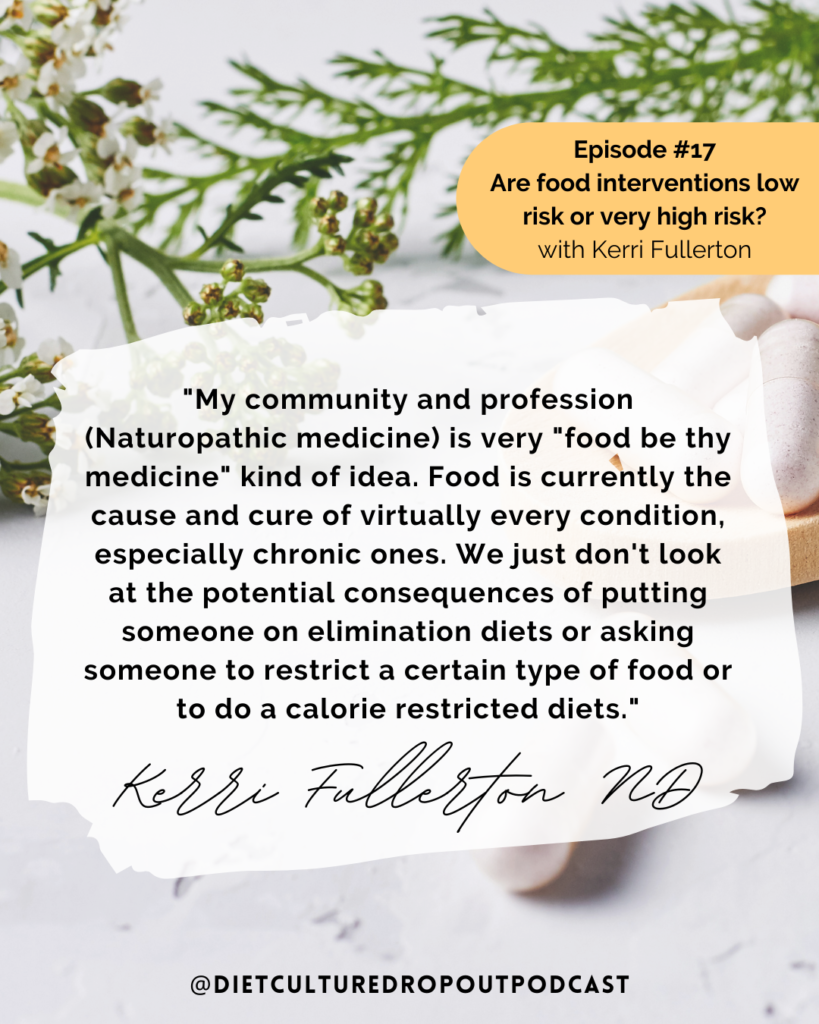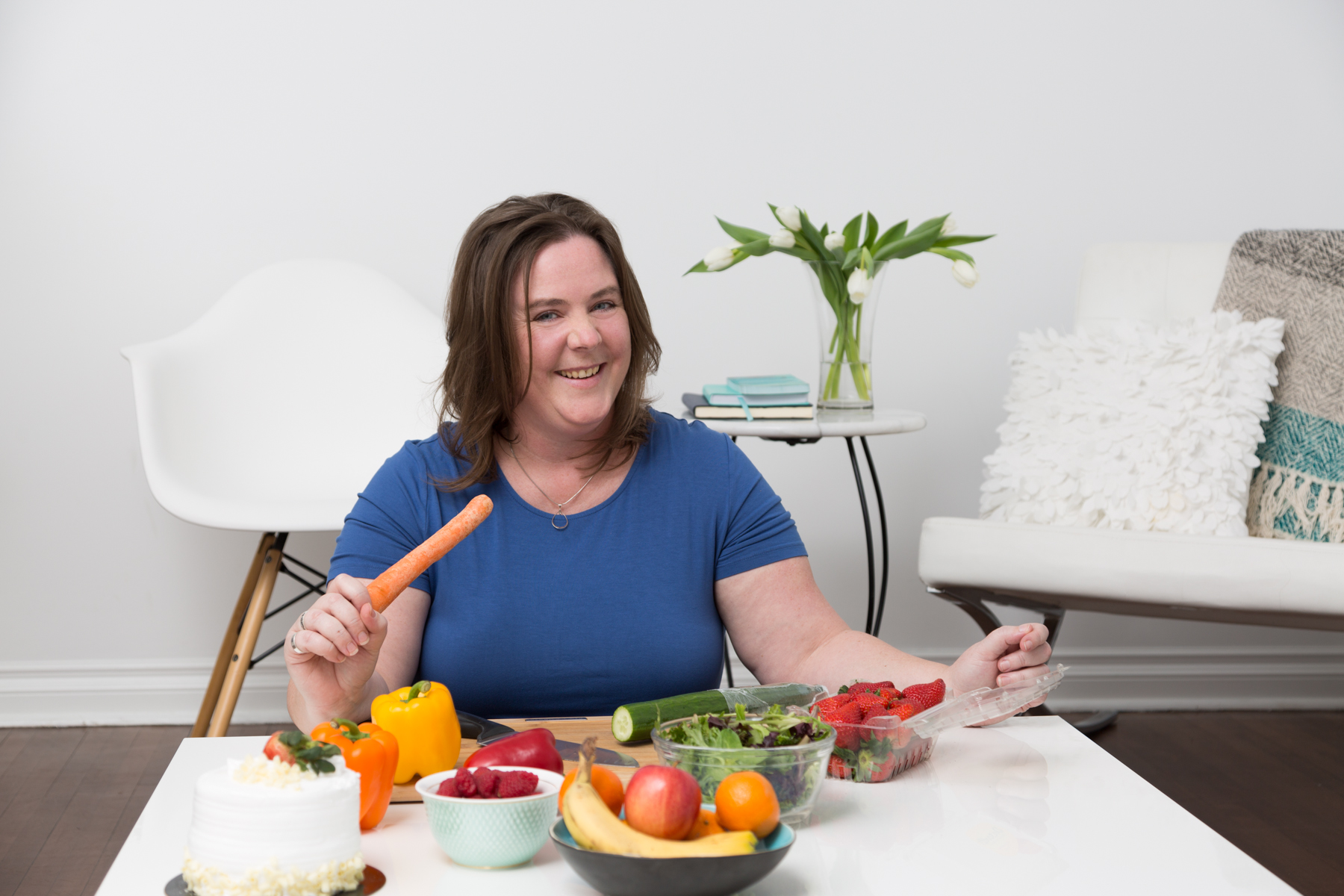This blog post was inspired by a podcast episode I recorded with Kerri Fullerton. You can fidn this interview on the Diet Culture Dropout Podcast episode # 17 Are food interventions low risk or high risk? Kerri is a naturopathic doctor who works from a non-diet and Intuitive Eating paradigms. We explore what risks may be involved when food interventions are being suggested by practitioners.

If you want to hear the full episode and what was discussed please listen to it here.
What is a food intervention?
A food intervention is any recommendation given that involves the addition, removal or education around food. It may be around it’s nutrient profile, the benefits or the challenges it may bring when managing a certain condition or allergy. Not all food interventions can carry risk and perpetuate disordered eating. Take celiac disease for example. The food intervention that would manage this autoimmune disease is the removal of the protein gluten. This protocol is backed up by research, evidence and is best practice to care. It would carry low risk and has been shown to be effective in managing this disease.
What are more risky food interventions?
This is a loaded question that comes with lots of ideas. First off, I want to be clear that most clinicians do not want to perpetuate harm on their clients. But sometimes providers can be ill informed and not be up to date on the best practices of care. This obviously presents challenges to clients that may suffer from an eating disorder or have a history of chronic dieting. Interventions that focus on long term removal of foods, whole food groups, or suggest morality to a food can be very damaging. They may significantly impact the person’s relationship with food and their overall diet intake. This may place the person in a restrictive mindset or behavioural pattern. Which can lead to challenges seen within their physical, mental and emotional health.
Diet culture of course loves to suggest the latest food fear or must do diet. This usually comes with poor research outcomes and poor science backing it. There is also this pressure from diet culture that ‘food is thy medicine’ and is the ‘cure’ for any and all diseases. Which we know is just not the case.
If it is all or nothing it is likely BS
Whenever anything is dichotomous I always get a red flag that is signaled. Never in life (especially around food) should we have absolutes, rules or rigid parameters. Eating is meant to be flexible, every changing and diverse. Like Kerri mentions in the podcast episode “what can we add to the diet instead of restricting?” This approach is exactly how I explore things with my clients. Almost never (minus food allergies) are foods and entire food groups removed forever and ever. This is a bit extreme and very much a narrative diet culture suggests.

Catch the full episode I recorded with Kerri Fullerton about food interventions here on the Diet Culture Dropout Podcast.
You can connect with Kerri Fullerton on Instagram @thedietrebellion
As always if you would like a question answered on a future episode send a direct message via email or Instagram. To stay in the loop about the podcast follow the IG account @dietculturedropoutpodcast

leave a comment
share
share
share
share
share